One hundred years after the Algarve Line arrived in Lagos, the section between Tunis and this city will be electrified, in an investment of 25,4 million euros. The contract consignment document, an act that marks the start of work on this railway section of about 45 kilometers, was signed on the morning of this Friday, June 14, at Lagos station, in the presence of the Minister of Infrastructure.
Pedro Nuno Santos, in statements to journalists, classified this moment as «a great victory for the Algarve and for the national railroad».
Carlos Fernandes, vice president of Infrastructure in Portugal, the entity responsible for the works, recalled that the global investment in the electrification of the Algarve Line, between Lagos and Tunes and between Faro and Vila Real de Santo António, is 80 million euros. Work on this last section, in the Eastern Algarve, is already underway, while work on the western section will start in a few days.
In addition to electrification, underlined Carlos Fernandes, there are other investments in progress, for example the new Olhão Substation («whose tender was deserted», with no interested companies, so «a new tender will be launched soon, with a higher price» ), that of the Tunes Substation, «already with open proposals» and in the process of being awarded, that of the new signaling between Faro and Vila Real de Santo António, which «will be signed today», or the new signage between Tunes and Lagos, «with current technology», whose public tender is about to be launched. The works on the Algarve Line should be completed by 2024.
In total, there are the 80 million euros of investment, which will allow, for example, "a 25-minute reduction" in the train journey between Lagos and Vila Real de Santo António or "the extension of Alfa and InterCidades" to Guadiana city.
Hugo Pereira, Mayor of Lagos, welcomed the investment in infrastructure, which he considered “important for territorial cohesion”, but did not fail to recall that “the Algarve was for centuries a peripheral region”, where everything arrived later, by train. , to the highway.
"Oh train of modernization, in these 100 years, has insisted on arriving late to the Algarve, in particular to the Tunes/Lagos branch», underlined the mayor.
The mayor of Lagos also expressed his “concern” with the “visual and scenic impact” that the electrification of the line will have along the six kilometers of the section that borders Meia Praia, adding that the City Council and the company Infrastructures of Portugal are already working together on a landscape project to «implement solutions to minimize» the impacts, namely the approximately 100 catenaries measuring 5,5 meters in height that will be installed in that area by the sea.
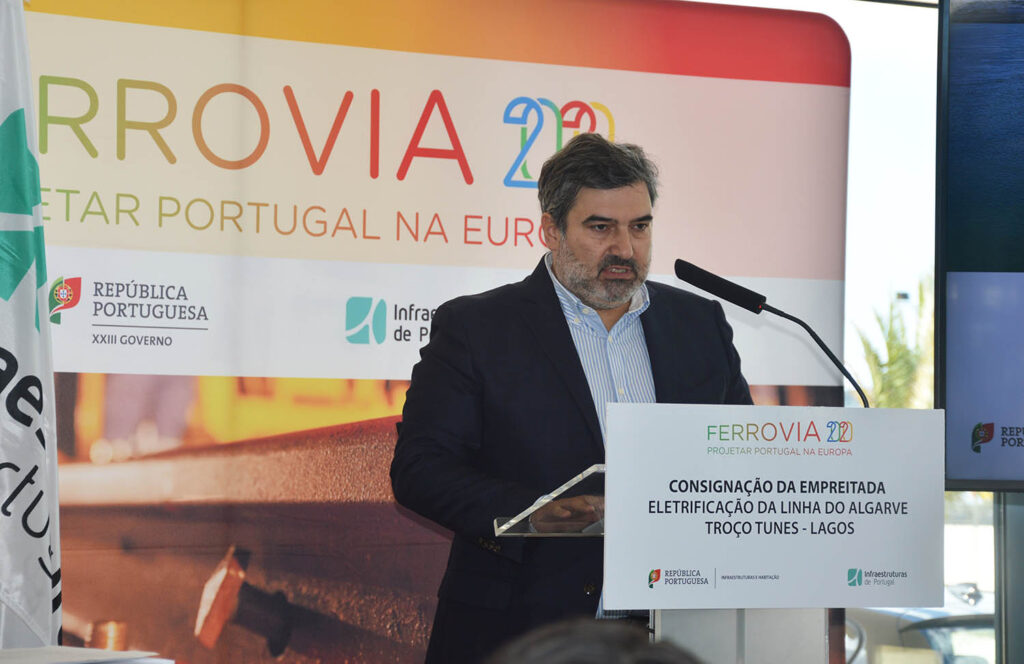
The Minister of Infrastructure and Housing, for his part, after emphasizing that «the railway and the electric railway help to reduce dependence on imports of fossil fuels», stressed that «fortunately Portugal has woken up to the railway, after decades of disinvestment and of closing lines'.
Pedro Nuno Santos announced that «the next major investment cycle is more focused on the passenger», work that «also has to go through the Algarve», namely reducing «travel times» between Lisbon and the Algarve and on the Algarve line itself.
For this, he added, Infraestruturas de Portugal will study «some variants to further reduce travel time», added the minister.
But the rail link between the Algarve and Spain is not forgotten either. The minister spoke of the need to connect the Algarve region «to the Mediterranean corridor», connecting the Algarve Line to Spain. He admitted that the Portuguese Government is «working with the authorities in Spain», even stressing that it is «a job that we are doing in a very insistent and committed way».
Another investment that will be included in the next cycle will be the renewal of rolling stock. For now, rolling stock is being recovered – mainly carriages – that were leaning against each other. «CP has done an extraordinary job with this material», he guaranteed.
But rolling stock was also purchased from Spain (which is also undergoing adaptation and modernization works), as well as a tender to buy 117 new trains. It will be, in the words of the minister, «the biggest competition ever in the history of the railway in Portugal».
Of the carriages and machines that are being recovered or that will be purchased new, part of them will, in the future, also be on the Algarve Line.
«One hundred years later, we are aletrifying the Algarve Line. But this is not the end» of the planned railway investments in the region, assured Pedro Nuno Santos.
«What we are doing is merely justice to the people of the Algarve, aware of how much remains to be done», concluded the Minister of Infrastructure.
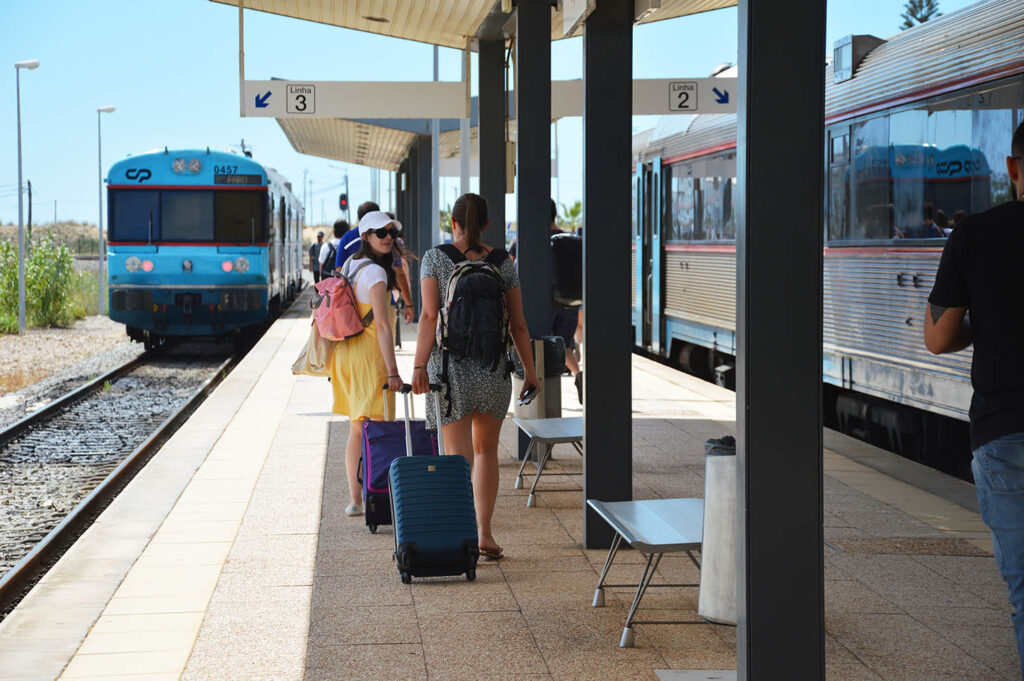
The electrification contract for the section of the Algarve Line, approximately 45 kilometers long between Tunes and Lagos, is carried out within the scope of the expansion and modernization program of the National Railway Network, Ferrovia 2020, and involves an investment of 25,4 million euros. , funded by the European Union within the scope of COMPETE 2020.
The company Infraestruturas de Portugal is promoting the Modernization of the Algarve Line, an undertaking that includes Electrification, the installation of the most modern Railway Signaling and Telecommunications Systems, the installation of Public Information Systems at all Stations and the suppression of Level crossings.
The Algarve Line electrification project will be carried out in two works. The first, corresponding to the electrification of the section between Faro/Vila Real de Santo António, has been under development since November 2021. The second, which corresponds to the electrification of the section between Tunes/Lagos, is now starting on the ground.
The implementation of the investments in the Algarve Line will ensure great advantages in terms of the quality of the passenger rail transport service throughout the Algarve region.
The electrification of the Algarve Line in its entirety will allow the use of more modern and environmentally sustainable electric traction trains, allowing the reduction of travel time for regional services by 25 minutes on the connection between Lagos and Vila Real de Santo António.
By ensuring the full operation of the Algarve Line using electric rolling stock, it also allows the Algarve population to have direct access to long-distance services (Alfa and InterCidades), without the need for transhipment, to the main national railway axis that connects the south to north of the country, and reduce the respective travel time between 10 and 25 minutes.
This action is part of the application submitted and approved within the scope of COMPETE 2020, with the designation “Linha do Algarve – Eletrificação”, for which 85% of community funding is expected.
The contract for the electrification of the section of the Algarve railway line between Tunes and Lagos, which serves the municipalities of Silves, Lagoa, Portimão and Lagos, was signed with the consortium formed by the companies Comsa Instalaciones y Sistemas Industriales SAU, FERGRUPO – Construções Técnicas Ferroviárias , SA / COMSA, SA.
Photos: Elisabete Rodrigues | Sul Informação
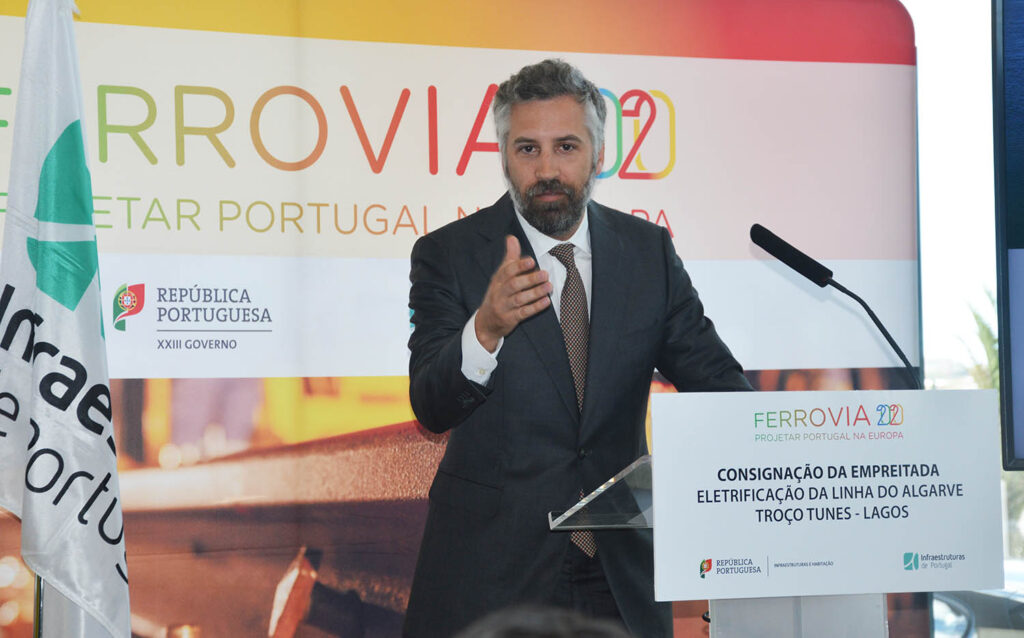
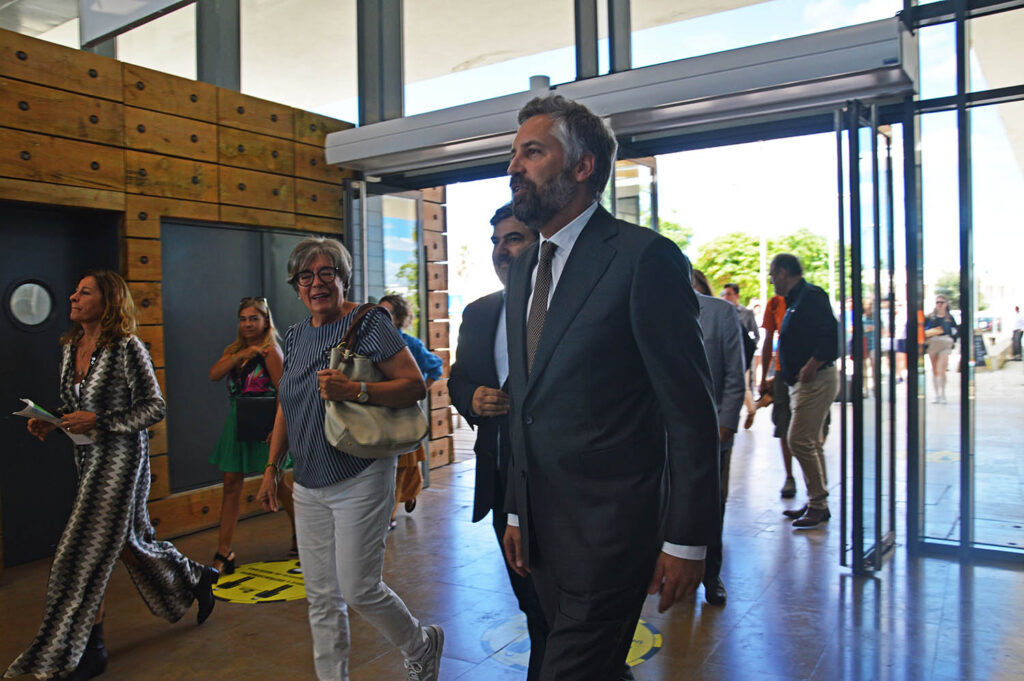
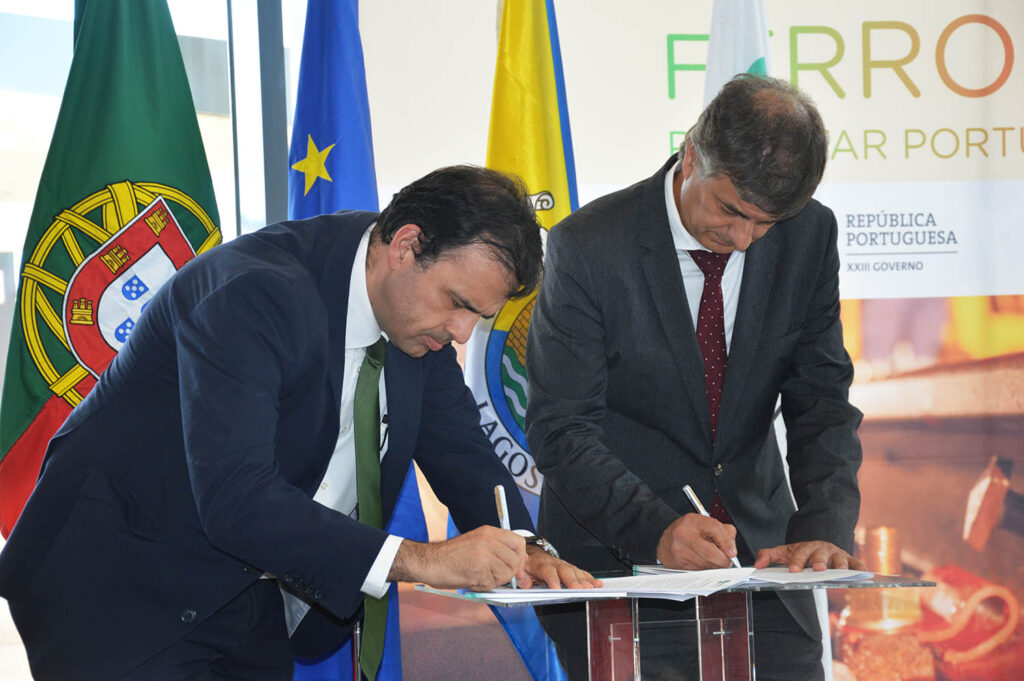
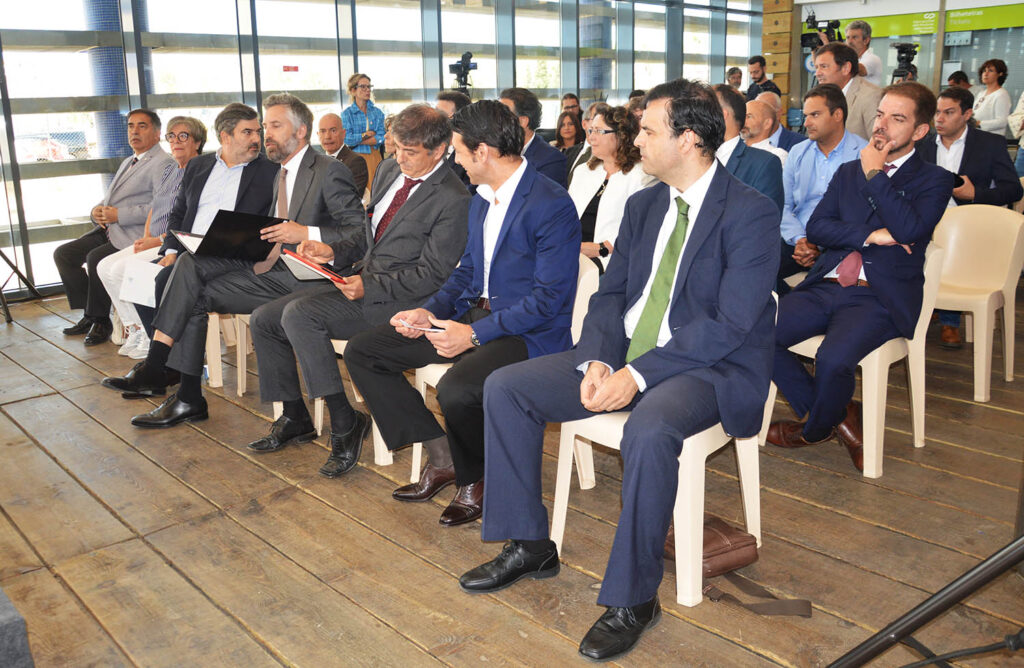
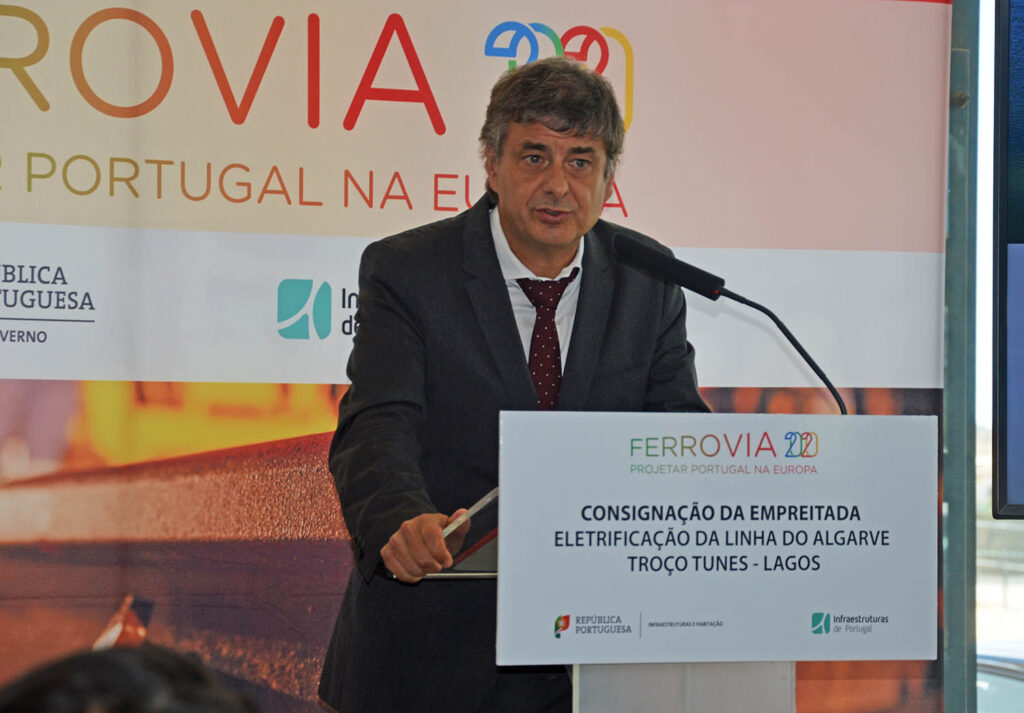



















Comments